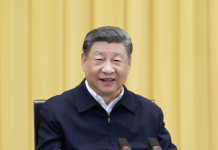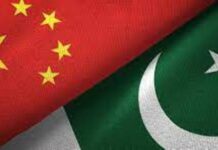By He Zhigao
BEIJING: Chinese State Councilor and Foreign Minister Wang Yi is scheduled to visit Italy, the Netherlands, Norway, France and Germany from Tuesday to September 1. It marks China’s first high-level overseas visit by officials since COVID-19 was put under control in China. It vividly illustrates the importance of Europe to China’s diplomacy.
China and Europe have been interacting frequently since the pandemic broke out. Both sides have given each other strong support, upheld frequent high-level interactions, shared experiences, and provided medical supplies and assistance to fight the scourge of this virus. Although there is discord between the two sides, including queries over the so-called mask diplomacy and cultural discrimination, as well as pressures from the US, China-Europe relations in general are committed to the fundamentals of win-win cooperation for the following reasons.
First, China and Europe face the common challenge of the international order’s decline. Under the “American First” doctrine, the Trump administration has brought a tendency of unilateralism and isolationism. This began with the US’ withdrawal from the Trans-Pacific Partnership agreement, the Paris Agreement on climate change, the UNESCO, and the Iran nuclear agreement. This brought uncertainty to the international landscape and risks to international order. In addition, as the pandemic has further impacted trans-Atlantic trade and security cooperation, the US has accelerated the economic and geo-strategic competitions with China. As important pillars of the multi-polar world, China and Europe share responsibility to promote multilateralism and resist unilateralism.
Second, both China and Europe are committed to improving the existing international order. China rises within the existing international order, of which Europe is a key supporter. What’s more, both sides promote diversity of civilization, globalization and multilateralism. On the one hand, China and Europe are complementary in many aspects in the face of increasingly serious global issues. Their mutually beneficial cooperation can reduce governance costs while promote collaborative development. On the other hand, China’s vision of building a community of shared future for mankind and EU’s insistence of multilateralism share the same pursuit of global governance.
– The Daily Mail-Global Times News exchange item






